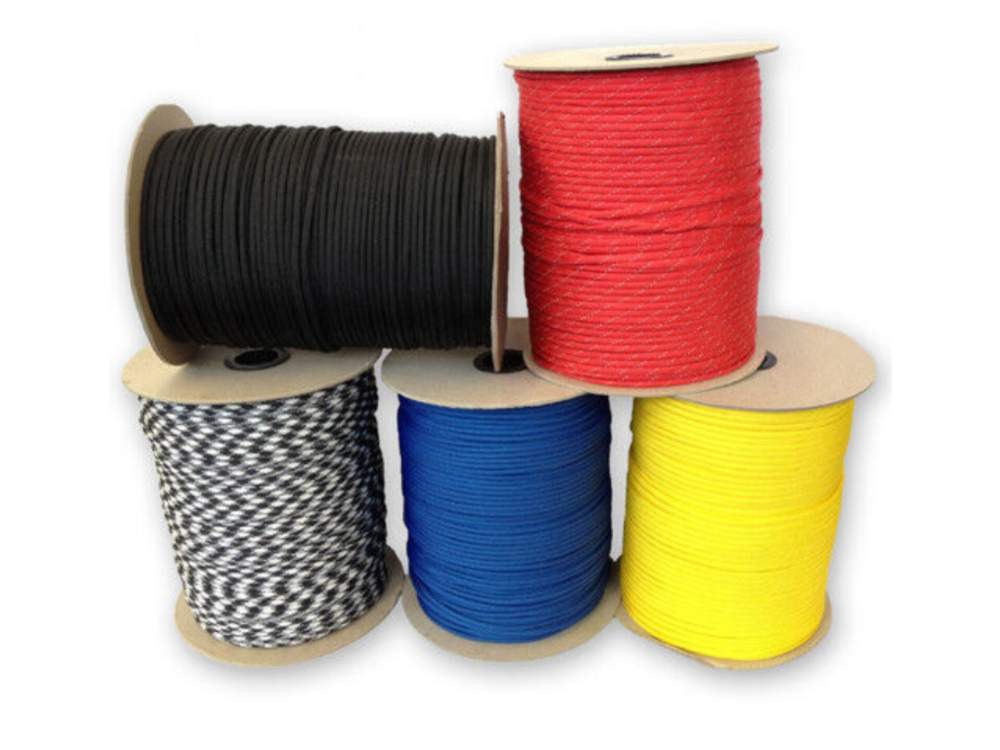Price of Paracord Supplies in Ghana

Among the many essential tools and supplies that these individuals rely on, paracord stands out as a versatile and indispensable resource.
Paracord, short for parachute cord, was initially developed for military use due to its strength, durability, and reliability.
Its usage extended beyond parachutes, as soldiers found creative ways to utilize the cord for various applications in the field. Over time, the versatility of paracord caught on with outdoor enthusiasts and survivalists worldwide, leading to its popularity in Ghana.
One of the primary reasons for the widespread use of paracord in Ghana is its exceptional strength-to-weight ratio.
Made of nylon, paracord boasts a minimum breaking strength of 550 pounds, making it an ideal choice for a multitude of tasks.
Whether it’s securing tents, building shelters, creating fishing nets, or even fashioning emergency tourniquets, paracord can be relied upon to withstand immense pressure and deliver reliable results.
What are Paracord Supplies?
Paracord, short for parachute cord, is a lightweight nylon rope that was initially used for suspension lines during World War II.
With a unique construction consisting of a woven outer sheath and multiple inner strands, paracord is known for its incredible strength-to-weight ratio.
Types of Paracord Supplies
1. Type III Paracord
Type III paracord consists of a woven outer sheath and seven inner strands, each made up of two or three smaller strands. It is suitable for a wide range of applications and is available in a multitude of colors and patterns.
2. Type II Paracord
Type II paracord is a lighter version of Type III, typically featuring a minimum breaking strength of 225 pounds. It is ideal for crafting projects that require a thinner, more lightweight cord.
3. Commercial Paracord
While not as strong as military-grade paracord, commercial paracord is still highly durable and suitable for many applications. It is often more affordable and comes in various thicknesses and colors.
- Advertisement -
4. Reflective Paracord
Reflective paracord is designed with reflective tracers woven into the outer sheath. It is an excellent choice for nighttime visibility, making it ideal for camping, hiking, or emergency situations.
Uses of Paracord Supplies
- Paracord supplies can be used to secure your tent, create a clothesline, or even construct a makeshift tarp shelter.
- Whether you need to secure a splint, create a makeshift sling, or even build a rescue line, paracord supplies can be a lifesaver when you find yourself in a bind.
- Paracord supplies can be used to repair broken straps, secure loose ends, or even create new handles.
- Paracord supplies can be used for various purposes, such as setting traps, constructing a makeshift fishing line, or even fashioning a bow.
- Paracord supplies colors and easy-to-use nature make them a popular choice for those who enjoy crafting and personalizing everyday items.
Price of Paracord Supplies in Ghana
The cost of paracord in Ghana can vary greatly depending on the quality and brand. You can find paracord supplies ranging from GHS 15 to GHS 50 per meter. Lower-priced options often come in bulk, while higher-priced ones may offer additional features such as reflective strands or fire-starting capabilities.
Factors Influencing Prices of Paracord Supplies in Ghana
1. Raw Material Costs
The cost of raw materials used to manufacture paracord is a significant factor affecting its prices. The primary material, nylon, is subject to price increase due to factors such as global demand, availability, and production costs.
2. Currency Exchange Rates
Increase in currency exchange rates can lead to changes in import costs, including shipping charges, customs duties, and taxes. If the local currency weakens against major trading currencies, the prices of paracord supplies are likely to increase.
3. Supply and Demand Dynamics
When the demand for paracord is high, but the supply is limited, prices tend to rise. When there is an oversupply of paracord in the market, prices may decrease due to increased competition among suppliers.
4. Transportation and Logistics
Factors such as fuel prices, shipping routes, and import/export regulations can influence the overall transportation expenses, thereby affecting the prices of paracord supplies in the local market.
5. Manufacturing and Labor Costs
Changes in labor wages, inflation rates, and energy costs can influence the manufacturing costs, which are then passed on to the consumers. Also, improvement in manufacturing technology may result in more efficient production methods, potentially reducing costs and in turn, affecting prices.
Conclusion
The prices of paracord supplies in Ghana vary depending on various factors such as the quality, quantity, and the location of purchase. While some suppliers may offer competitive prices, it is important to consider the authenticity and reliability of the products.
It is advisable to conduct thorough research and compare prices from different sources to ensure that you are getting the best value for your money.


